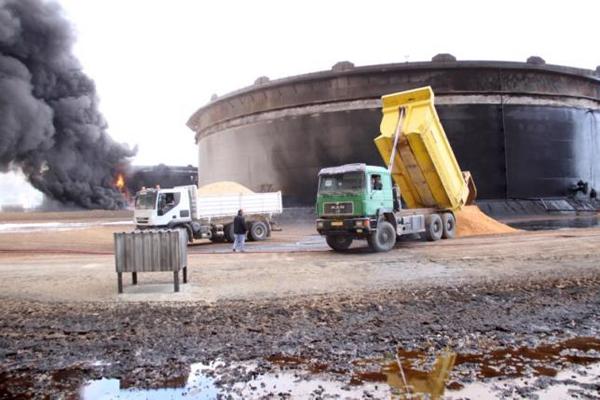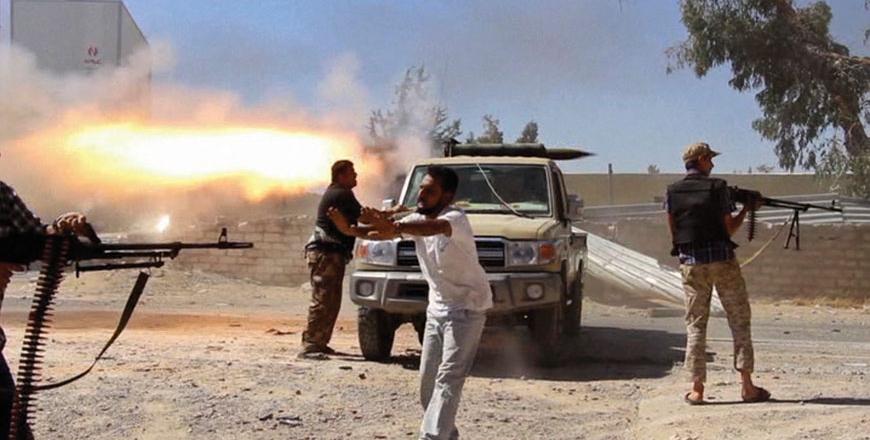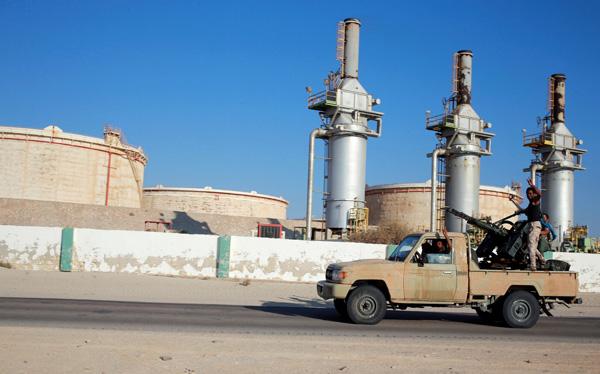You are here
Libya's oil terminals reopen after 18 months of closure
By AP - Jul 30,2016 - Last updated at Jul 30,2016

This photo shows smoke rising from burning oil storage tanks in the port of Ras Lanuf, Libya, January 23 (Reuters file photo)
BENGHAZI, Libya — Libya's UN-brokered presidency council has announced the reopening of the country's vital oil terminals after 18 months of closure despite threats by a rival military commander that his forces could target tankers entering Libya's territorial waters.
The announcement came after the UN envoy to Libya, Martin Kobler, struck a deal more than a week ago with the terminals' militia commander, Ibrahim Jedran, who was behind the December 2014 closure that caused a sharp decline in state revenue.
Libya's crude, known as light, sweet crude, is rare and especially valuable because it is easier for refineries to convert into diesel and gasoline. Revenues have been dealt a major blow and Libyans lost over $100 billion in potential profits over the past three years, according to oil officials. Libya exported a total of 146 million barrels of oil in 2015, compared to 531 million barrels in 2012.
Details of the deal with Jedran, who commands the force known as Petroleum Facilities Guards, were not disclosed, but critics speculated that it involved billions of dollars, sparking accusations that Kobler and the UN are empowering the warlord viewed by many as having held Libya's oil hostage for the past two years.
Moussa Al Kouni, deputy head of Libya's UN-brokered presidency council, announced the terminals reopening late on Thursday at the Ras Lanuf terminal, expressing "hope and optimism" that the step marks the "beginning for our country's recovery". As he spoke, Jedran stood next to him.
Since the ouster of Libya' longtime leader Moammar Qadhafi in 2011, the oil-rich North African country has sunk into turmoil.
The three major oil terminals, Ras Lanuf, Al Sidra and Al Zueitina, operated intermittently under Jedran's control until his troops completely shut them down after an assault on Ras Lanuf by a rival, Tripoli-based militia.
But the anticipated announcement of the terminals' reopening did not pass without threats.
Libya's chief of staff Brig. Gen. Abdel-Razek Al Nadhouri, who answers to the internationally-recognised parliament based in eastern Libya, threatened on Tuesday to target foreign oil tankers if they entered Libyan territorial waters without parliament's approval.
Libya remains split between the UN-brokered presidency council and unity government that are based in the capital, Tripoli, and the parliament in the east. According to the UN deal signed last year, the parliament is supposed to vote to approve the government — something it has still failed to do.
Related Articles
CAIRO — From east and west, the forces of Libya's rival powers are each moving on the city of Sirte, vowing to free it from the hold of the
TRIPOLI — Libya's recognised government warned its security forces would seize any tankers approaching the Ras Lanuf terminal without permis
BENGHAZI, Libya — A counter-attack by fighters loyal to Libya's UN-backed unity government aimed at retaking key eastern oil ports was repel













